NIL
Some Schools Worry About Memo Binding Them to House Terms
Some Schools Worry About Memo Binding Them to House Terms Privacy Manager Link 2

NIL
College football needed Nico Iamaleava to address NIL. He punted
Josh Heupel on Nico Iamaleava exiting Tennessee Tennessee coach Josh Heupel shares feelings on Nico Iamaleava’s exit from the Vols and ‘do not contact’ tag. Sports Pulse LAS VEGAS — He could’ve changed it all, pulled back the curtain on the underbelly of college football and revealed its sordid secrets. And he punted. There was […]
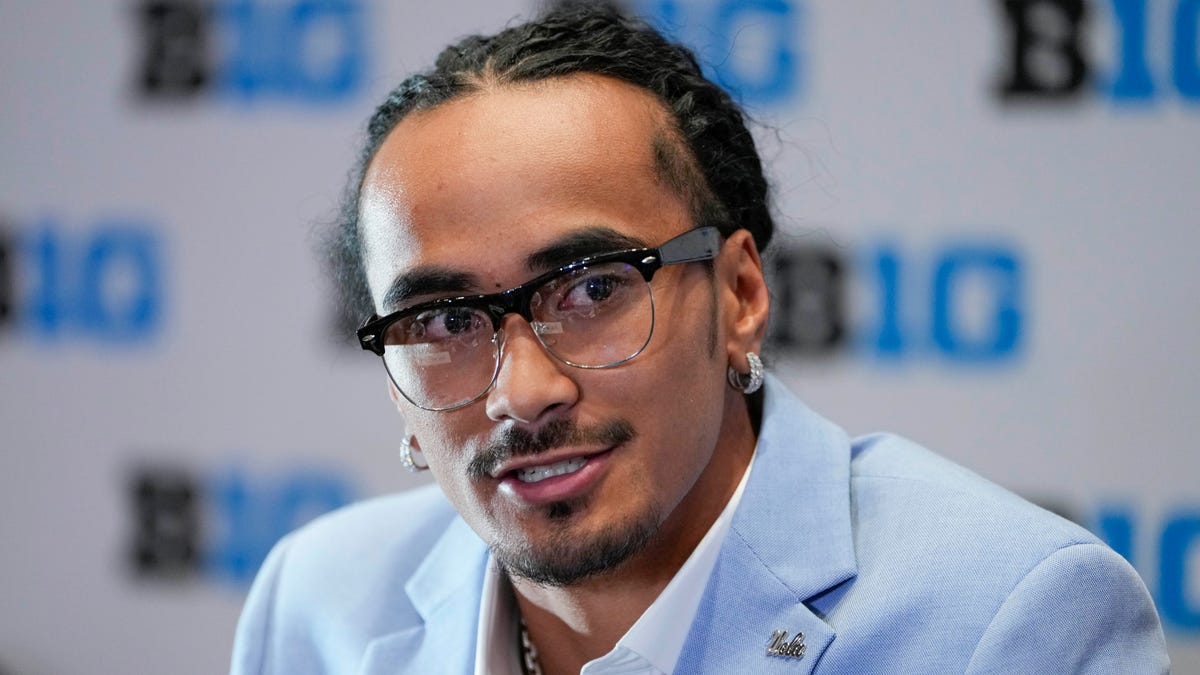
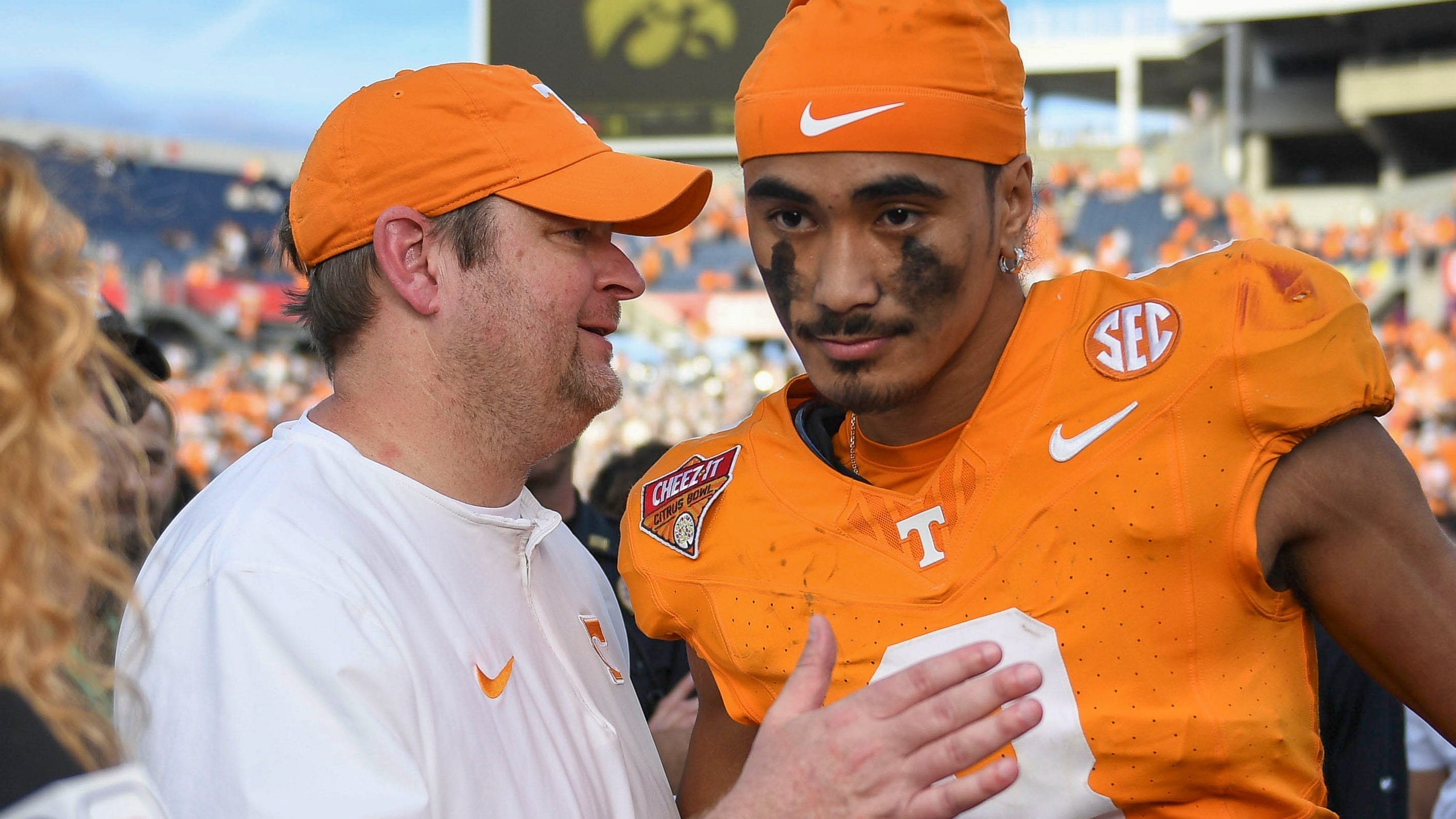
Josh Heupel on Nico Iamaleava exiting Tennessee
Tennessee coach Josh Heupel shares feelings on Nico Iamaleava’s exit from the Vols and ‘do not contact’ tag.
Sports Pulse
LAS VEGAS — He could’ve changed it all, pulled back the curtain on the underbelly of college football and revealed its sordid secrets.
And he punted.
There was new UCLA quarterback Nico Iamaleava, ground zero for all that is wrong in the new age of player empowerment in college football, taking the fifth at Big Ten media days on Thursday, July 24 when he could’ve been transcendent.
Shutting it down when he should’ve lit it up.
New team, new goals, but no new answers from the one player with intimate knowledge of – and in a unique position to explain – how the nation’s second-most popular sport has driven its spotless reputation into the ditch with a never-ending money grab by players and universities.
“I don’t speak on money matters,” Iamaleava said over and over. “I’m just here for ball and school.”
And away we go.
Iamaleava, whose $8 million dollar deal with Tennessee three years ago started NIL money madness, could’ve stood long and strong in his first public comments about his controversial departure. Stretch his 6-feet-6 frame to expand beyond his orbit, and proudly explain his controversial leverage move to UCLA and everything that came with it.
He could’ve detailed how the player procurement sausage is made – recruiting, contract negotiations, predatory sports agents and their bloated fees, prove-it or lose it rosters spots, player retention and player run-off – and how, despite what Joe Sixpack thinks, players aren’t the boogeyman.
Instead he talked about “false (media) reports” and the “noise” outside his inner circle that he ignores by playing video games. He said he loved his time at Tennessee, and he just wanted to go home to Los Angeles.
“It’s not about the money,” he said. “I did what was best for me.”
If you want to blame someone for this convoluted and multiplying mess, for the constant state of flux and turnover among 265 Bowl and Championship Subdivision football playing schools, don’t blame the players.
They’re simply working within the rules laid out by those in power. Or lack of rules.
The real villain in the process are universities presidents. Not players, not coaches, not conference commissioners.
Presidents run college football, and frankly, a majority have no idea what they’re doing.
The same university presidents who five years ago saw the get yours, shared revenue train barreling down the tracks and ignored it — then said, screw it, let’s allow players to negotiate NIL deals with free player movement.
What could go wrong?
The same university presidents who time after time watched their dysfunctional NCAA lose spectacularly in major legal cases, but kept doubling down on stupid.
It doesn’t really matter why Iamaleava left Tennessee, or how or why he used leverage days before the opening of the spring portal. Or how it failed.
Doesn’t matter if he tried to push Tennessee to put more pieces from the portal around him so he could further develop his NFL bonafides, or if it were just a money play. Or both.
What matters is an unguarded system has been set up, and players are taking advantage of the system. Why wouldn’t they?
Iamaleava isn’t the first to use leverage, and won’t be the last. He was simply the most high profile because of his position and the leverage moment — and because Tennessee called his bluff.
These things happen all the time across all of college football, and they’re not going to end. In fact, they’ll get worse.
Because no matter how hard university presidents try to protect their media rights money by refusing to collectively bargain with players (and therefore pay significantly more to players), they haven’t been able to legally pull it off.
Even the recent groundbreaking House settlement is beginning to fall apart, with its critical management provision of private NIL deals already facing significant legal hurdles.
The moment was there for Iamaleava to seize, to grab the wheel of a sport careening into the unknown and level a shock to the system. Expose the underbelly, force change.
Instead of punting.
“I’ll let my business reps and agent take care of that,” Iamaleava said.
What could go wrong?
Matt Hayes is the senior national college football writer for USA TODAY Sports Network. Follow him on X at @MattHayesCFB.
NIL
Trump signs NIL overhaul order to curb big money influence in college sports
From left, linebacker Jack Sawyer, with jersey, President Donald Trump, and head coach Ryan Day attend a ceremony with the 2025 College Football Playoff National Champions Ohio State Buckeyes, on the South Lawn of the White House on Monday, April 14, 2025. Tom Williams | CQ-Roll Call, Inc. | Getty Images WASHINGTON — President Donald […]

From left, linebacker Jack Sawyer, with jersey, President Donald Trump, and head coach Ryan Day attend a ceremony with the 2025 College Football Playoff National Champions Ohio State Buckeyes, on the South Lawn of the White House on Monday, April 14, 2025.
Tom Williams | CQ-Roll Call, Inc. | Getty Images
WASHINGTON — President Donald Trump on Thursday signed an executive order prohibiting “third party, pay-for-play” payments to college athletes, a move the White House is taking to curb “bidding wars” that have roiled college sports in recent years.
The order, a fact sheet that was shared in advance with NBC News by a White House official, notes that recent court rulings have dismantled the NCAA’s transfer and recruiting rules and “created a chaotic environment that threatens the financial and structural viability of college athletics.”
The order could send shockwaves through college football and men’s basketball, where player recruitment in the so-called transfer portal has become a multimillion-dollar market in recent years, with top teams spending tens of millions to fill out rosters.
The order would not apply to fair-market compensation for athletes who make brand endorsements, according to the White House.
The order also looks to protect women’s and nonrevenue sports by mandating that revenue sharing between universities and college athletes be implemented in a manner that protects those programs.
The president’s order also notes that a patchwork of laws in 30 states have contributed to competitive imbalances in sports.
It was not immediately clear how the proposed order would be enforced, or what mechanisms were in place to ensure revenue is shared more equitably between men’s and women’s and nonrevenue-generating sports.
NIL
Alabama’s Greg Byrne talks Donald Trump college sports executive order
Alabama athletics director Greg Byrne praised an executive order from President Donald Trump on Thursday. “The University of Alabama applauds this executive order from President Trump to help ensure a long-term, sustainable model of intercollegiate athletics,” Byrne said in a statement he posted to social media Thursday evening. “We are proud of our broad-based athletics […]

Alabama athletics director Greg Byrne praised an executive order from President Donald Trump on Thursday.
“The University of Alabama applauds this executive order from President Trump to help ensure a long-term, sustainable model of intercollegiate athletics,” Byrne said in a statement he posted to social media Thursday evening. “We are proud of our broad-based athletics programs and strongly support future regulatory and congressional action that will preserve these opportunities for student-athletes.”
Thursday’s executive order mandates that federal authorities clarify whether athletes can be considered employees of their schools. The NCAA and its schools have long argued that athletes should not be employees.
The refusal of schools and the NCAA to evolve eventually led to several crushing court defeats in recent years, which led in part to the rise of NIL payments for players, which, when coupled with free transfer, led to a chaotic moment in college sports.
The order prohibits “third-party pay-for-play” payments to players. However, it does not stop NIL agreements adhering to “legitimate, fair-market-value compensation.”
The immediate impact of the order on college sports, if any, is unclear.
Byrne and Alabama have opposed an employment model. In 2024, he said before a congressional panel that such a development could cause UA to cut sports.
“It’s the Olympic sports that would be in jeopardy,” Byrne said. “That’s men and women. If you look at the numbers for us at the University of Alabama, with our 19 sports outside of football and men’s basketball, we lost collectively almost $40 million. We funded that through our revenue from a football and men’s basketball standpoint.
“So potentially, which one specifically, if I’m just saying this in general: if I’m a swimming student-athlete. If I’m a tennis, I’m a track, any of those sports — those are really important to our universities — we want to compete in them. I can’t stress that enough. But there also will have to be decisions made because there’s not an unlimited supply of money like some believe.”
If you purchase a product or register for an account through a link on our site, we may receive compensation. By using this site, you consent to our User Agreement and agree that your clicks, interactions, and personal information may be collected, recorded, and/or stored by us and social media and other third-party partners in accordance with our Privacy Policy.
NIL
Tennessee committed NCAA violation because of another school's error, records show
AI-assisted summaryThe University of Tennessee women’s track and field team unknowingly committed a minor NCAA violation due to inaccurate data in the transfer portal database.A transfer athlete competed for UT after the university confirmed her eligibility based on the faulty data, but it was later discovered she had already exhausted her eligibility.UT self-imposed an internal […]
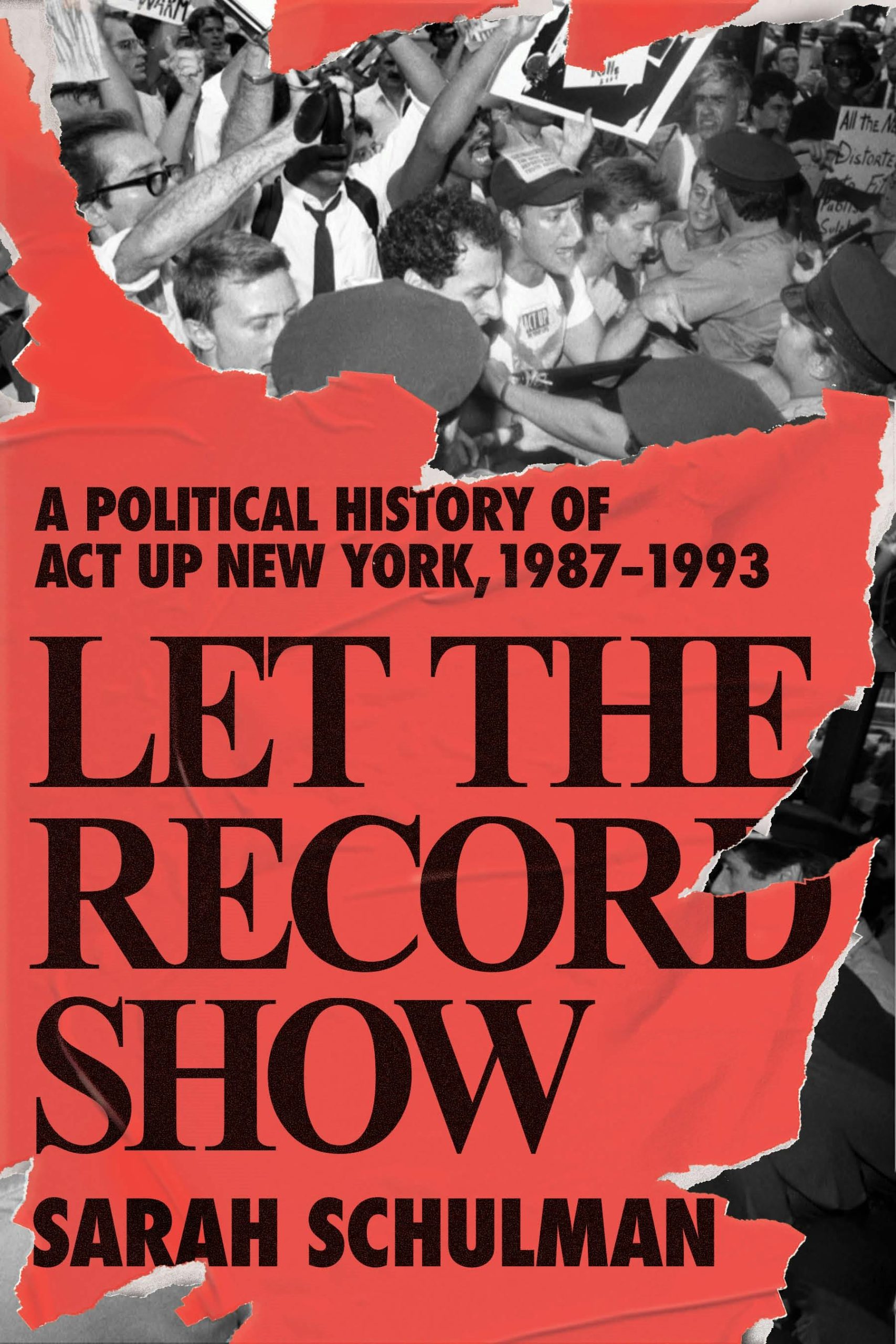
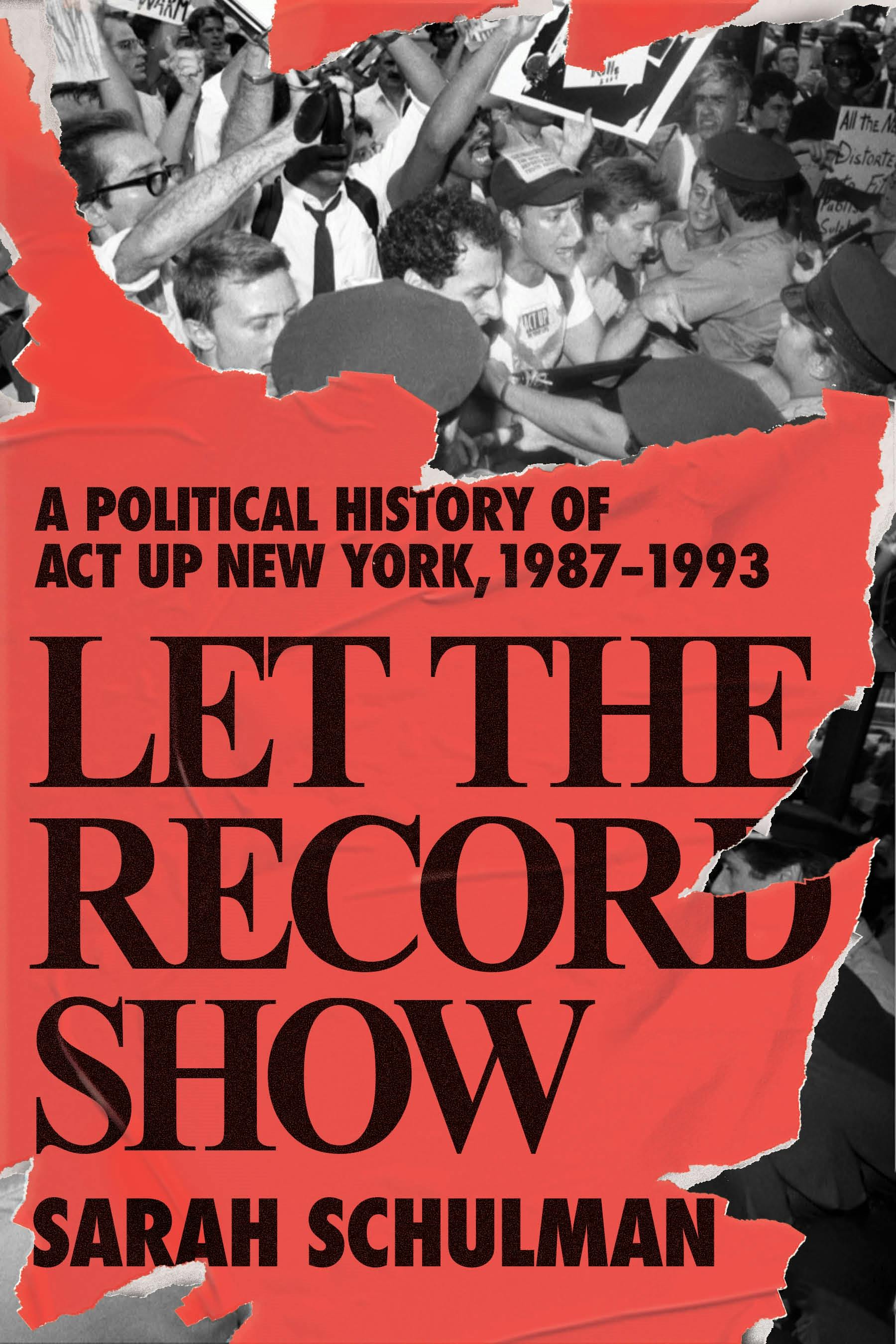
 AI-assisted summaryThe University of Tennessee women’s track and field team unknowingly committed a minor NCAA violation due to inaccurate data in the transfer portal database.A transfer athlete competed for UT after the university confirmed her eligibility based on the faulty data, but it was later discovered she had already exhausted her eligibility.UT self-imposed an internal review of its eligibility verification process following the incident.The NCAA and SEC did not impose penalties, recognizing UT’s compliance staff followed protocol based on the available information.Inaccurate information in the transfer portal database led the Tennessee women’s track and field team to unknowingly commit a minor NCAA violation, records show.
AI-assisted summaryThe University of Tennessee women’s track and field team unknowingly committed a minor NCAA violation due to inaccurate data in the transfer portal database.A transfer athlete competed for UT after the university confirmed her eligibility based on the faulty data, but it was later discovered she had already exhausted her eligibility.UT self-imposed an internal review of its eligibility verification process following the incident.The NCAA and SEC did not impose penalties, recognizing UT’s compliance staff followed protocol based on the available information.Inaccurate information in the transfer portal database led the Tennessee women’s track and field team to unknowingly commit a minor NCAA violation, records show.
Early in 2025, a transfer athlete competed for UT in an indoor track event after her eligibility had been certified by the university’s compliance staff relying on data in the transfer portal database.
But upon further review, UT determined that the athlete’s previous school had entered inaccurate information into the database. She had already exhausted her eligibility, so her participation violated NCAA rules.
That was the only Level III NCAA violation reported by UT in the first half of 2025, according to a document obtained by Knox News through a public records request.

Level III infractions are minor breaches of conduct. They are common and routinely reported by athletic departments at every school. They almost always result in low-level penalties or an internal review, which was the case in this instance.
After discovering the track athlete was ineligible, UT self-imposed an institutional review of its eligibility verification process to account for errors made by other universities in the transfer portal database.
Neither the athlete nor her previous school were identified in UT’s report.
The SEC and NCAA did not impose any penalties because UT’s compliance staff followed protocol based on the information it had. Plus, UT coaches believed the track athlete was eligible because they relied on false data in the transfer portal database.
The athlete was not permitted to compete further because she had exhausted her eligibility.
Adam Sparks is the Tennessee football beat reporter. Emailadam.sparks@knoxnews.com. X, formerly known as Twitter@AdamSparks. Support strong local journalism by subscribing at knoxnews.com/subscribe.
Get the latest news and insight on SEC football by subscribing to the SEC Unfiltered newsletter, delivered straight to your inbox.
NIL
Trump issues executive order related to paying college athletes
Just about a week away from college football teams reporting to camps, President Donald Trump on Thursday issued an executive order governing how some payments are made to college athletes and to protect other sports that don’t generate lots of money. The order claims to seek to clarify how universities pay their players, but it’s […]

Just about a week away from college football teams reporting to camps, President Donald Trump on Thursday issued an executive order governing how some payments are made to college athletes and to protect other sports that don’t generate lots of money.
The order claims to seek to clarify how universities pay their players, but it’s likely to further confuse an already chaotic landscape as university officials grapple with new revenue-sharing plans as part of a massive legal settlement that took effect on July 1.
The order will continue to allow athletes to market their name, image and likeness, better known as NIL, as long as those NIL deals remain “legitimate, fair-market value compensation … such as for a brand endorsement,” the order read in part.
But it prohibits “third-party, pay-for-play payments to college athletes,” the fact sheet reads. “The order provides that any revenue-sharing permitted between universities and collegiate athletes should be implemented in a manner that protects women’s and nonrevenue sports.”
Athletics department officials from Washington State University and Gonzaga University were not immediately available for interviews Thursday afternoon when the order was announced.
But U.S. Rep. Michael Baumgartner, R-Spokane, issued a statement in support.
“President Trump’s executive order is a major step toward restoring fairness in college athletics. It reins in NIL abuses, protects women’s and Olympic sports, and ensures any future revenue-sharing model preserves broad-based participation,” Baumgartner said in a news release. “I applaud the president for signing this executive order, and I look forward to working with him to save college sports.”
Trump’s directive comes on the heels of rules issued earlier this month by the College Sports Commission, which was created by the Southeastern, Big Ten, Big 12 and Atlantic Coast conferences to oversee a revenue-sharing system that was created by the July 1 House settlement.
In essence, the College Sports Commission is taking over the role that once was administered by the NCAA.
The settlement in House v. NCAA ended three separate federal-antitrust lawsuits which all claimed that the NCAA illegally was limiting the earning power of college athletes.
Since NIL payments began in 2021, collectives affiliated with specific schools inked deals worth hundreds of millions of dollars with athletes. They pool funds from donors and boosters and use them to license the NIL rights of specific athletes in exchange for appearances and social media posts.
As part of the suit, some of the $2.8 billion settlement will be distributed to athletes who played before they could take advantage of the current NIL rules.
But the suit also established a clearinghouse, called NIL Go, that must approve all third-party deals over $600, according to previous reporting by the Athletic.
The two main requirements for those deals are that they must be created for a “valid business purpose” and fit within the fair-market “range of compensation.”
The settlement also created a revenue-sharing system that allowed schools to directly pay their athletes up to $20.5 million in 2025. The CSC, created by the power conferences, was established to oversee that revenue-sharing program and it issued rules how schools were to issue those funds.
Earlier this month, the CSC issued guidance that immediately was met with backlash.
The guidance said “an entity with a business purpose of providing payments or benefits to student-athletes or institutions, rather than providing goods or services to the general public for profit, does not satisfy the valid business purpose requirement set forth in NCAA Rule 22.1.3.”
In response, attorneys Jeffrey Kessler and Steve Berman, who argued the case on behalf of the athletes, sent a letter to the College Sports Commission saying its guidance violated the terms of the House settlement and that the board should treat collectives the same as any other third-party business.
“While we want to continue to work together to implement the Settlement Agreement in a cooperative fashion, this process is undermined when the CSC goes off the reservation and issues directions to the schools that are not consistent with the Settlement agreement terms,” the letter said, according to the Athletic.
The CSC guidance also raised the ire of the Collective Association, a trade group of prominent collectives from around the country.
The CSC rules “regarding ‘true NIL’ and ‘valid business purposes’ is not only misguided but deeply dismissive of the collective organizations and the tens of thousands of fans and donors who fuel them,” the association wrote, according to the Athletic. “Any attempt to delegitimize the role collectives play in today’s collegiate athletics landscape ignores both legal precedent and economic reality.”
In regards to those ongoing revenue sharing controversies, Trump’s order directs the U.S. Secretary of Labor and the National Labor Relations board to clarify the status of student-athletes.
“The order directs the Attorney General and the Federal Trade Commission to take appropriate actions to protect student-athletes’ rights and safeguard the long-term stability of college athletics from endless, debilitating antitrust and other legal challenges.”
NIL
President Trump Signs Executive Order to ‘Save College Sports’
(By Nathan Breisinger, Pittsburgh Sports Now) – President Donald Trump signed an executive order in an effort to protect college sports, namely “protect student-athletes and collegiate athletic scholarships and opportunities” on Thursday. The executive order will prohibit third-party, pay-for-play payments to college athletes. It does not apply to legitimate, fair-market-value compensation that a third party […]

(By Nathan Breisinger, Pittsburgh Sports Now) – President Donald Trump signed an executive order in an effort to protect college sports, namely “protect student-athletes and collegiate athletic scholarships and opportunities” on Thursday.
The executive order will prohibit third-party, pay-for-play payments to college athletes. It does not apply to legitimate, fair-market-value compensation that a third party provides to an athlete, which includes for a brand endorsement. The order aims to preserve student-athletes as amateurs and not employees.
BREAKING: President Donald Trump has signed a College Sports Executive Order that prohibits third-party, pay-for-play payments to collegiate athletes🤯
Titled: “President Donald J. Trump Saves College Sports”https://t.co/86LKCEhLIF pic.twitter.com/xcc5X3sUAJ
— On3 (@On3sports) July 24, 2025
The White House published a release titled, “Fact Sheet: President Donald J. Trump Saves College Sports,” that features various points of the executive order.
Another key principal of the order is the protection of women’s and non-revenue generating sports. In part, revenue-sharing should be distributed in a manner that protects those sports.
In addition, “The Order directs the Secretary of Labor and the National Labor Relations Board to clarify the status of student-athletes in order to preserve non-revenue sports and the irreplaceable educational and developmental opportunities that college sports provide…The Order directs the Attorney General and the Federal Trade Commission to take appropriate actions to protect student-athletes’ rights and safeguard the long-term stability of college athletics from endless, debilitating antitrust and other legal challenges.”
The landscape of college athletics continues to change after the historic House v. NCAA settlement that was officially approved and took effect on July 1, 2025, allowing schools to share revenue directly with athletes and nearly $2.8 billion in backpay. Through the settlement, the NCAA and power conferences to create the newly-established enforcement arm, College Sports Commission.
Leaders from around college sports have been pushing for Congressional action and saw movement with the introduction of The SCORE Act, which is an “antitrust protection for the NCAA, power conferences and recently established enforcement arm, the College Sports Commission. The bill also features a preemption of state NIL laws, codifies the recently-approved House v. NCAA settlement and ensures that athletes are not employees,” per Pete Nakos of On3.
This story initially appeared on our partner site Pittsburgh Sports Now.
-

 College Sports2 weeks ago
College Sports2 weeks agoWhy a rising mid-major power with an NCAA Tournament team opted out of revenue-sharing — and advertised it
-

 Sports2 weeks ago
Sports2 weeks agoNew 'Bosch' spin
-

 Fashion2 weeks ago
Fashion2 weeks agoEA Sports College Football 26 review – They got us in the first half, not gonna lie
-
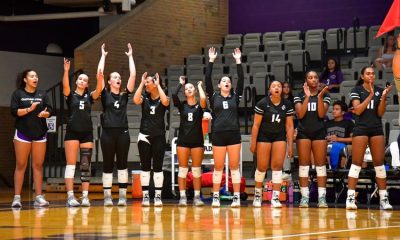
 Sports1 week ago
Sports1 week agoVolleyball Releases 2025 Schedule – Niagara University Athletics
-

 College Sports3 weeks ago
College Sports3 weeks agoMSU Hockey News – The Only Colors
-

 Sports3 weeks ago
Sports3 weeks agoE.l.f Cosmetics Builds Sports Marketing Game Plan Toward Bigger Goals
-

 Health2 weeks ago
Health2 weeks agoCAREGD Trademark Hits the Streets for Mental Health Month
-

 College Sports2 weeks ago
College Sports2 weeks agoBuford DB Tyriq Green Commits to Georgia
-
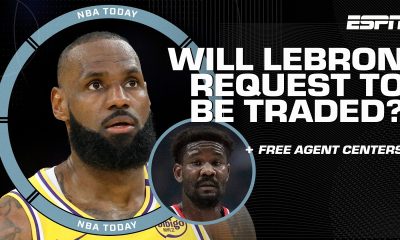
 Youtube3 weeks ago
Youtube3 weeks agoWill LeBron James request a trade? 🤔 Windy says MULTIPLE TEAMS would make offers 👀 | NBA Today
-

 Youtube2 weeks ago
Youtube2 weeks agoWill Giannis DEPART Milwaukee⁉️ + How signing Turner & waiving Dame impacts the Bucks | NBA Today




























